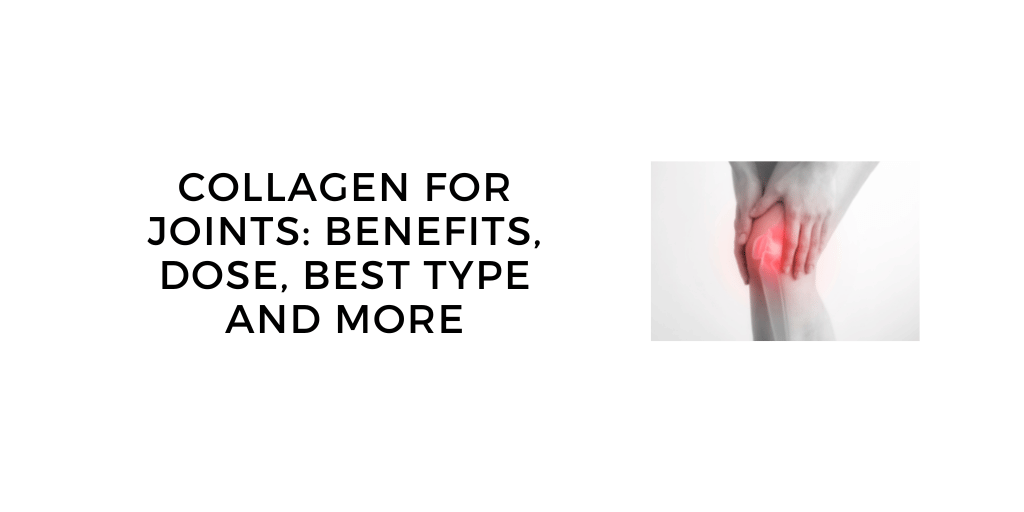
Collagen for Joints: How it Works, Benefits and How to take it
Guide to Collagen for Joints
You’re in pain and it’s preventing you from doing what you love. You’ve tried everything, but nothing seems to work. I've been there too. For 7 years I dealt with stubborn foot and ankle pain. I thought nothing would work and almost gave up my dream of running again.
Then I finally found out how to fix it.
You see, there are nutrients like collagen that can provide pain relief by reducing inflammation. But I'll tell you right now, there is no magic cure or panacea. It takes a long time and hard work.
Read this guide and I'll show you how collagen can help relieve joint pain, what's the best type and how to take collagen for the best results.
I'll mention briefly that if you're looking for product recommendations I always suggest real food options first, like a high protein bone broth. My favorite one for this is the chicken bone broth powder from Bluebird Provisions because of the 10 g collagen and extra joint building amino acids.
Ok, let's get on to the guide.
Is collagen worth taking for joints?
Yes, collagen supplements are worth trying in order to heal pain in your joints because of the anti-inflammatory and cartilage building amino acids.
These amino acids can lubricate joints and lay down new connective tissue to reduce pain and fix the actual problem.
This isn't just fluff, there are studies I will cite below that show how collagen peptides can reduce pain associated with osteoarthritis and improve overall joint health.
If you're looking for a supplement, read my collagen supplements guide to find a high quality one.
Also, the amino acids help with stress management and sleep, two crucial parts to healing the body and helping you cope with chronic pain.

Collagen for Joint Pain
You should consider taking collagen for joint pain because it reduces stiffness, provides cartilage support, heals tendons, builds muscle and bone density and reduces inflammation. Read on and I will explain each of these in detail.
1. Helps Reduce Arthritis Joint Pain and Stiffness
If you're suffering from joint pain because of rheumatoid arthritis symptoms or osteoarthritis then your connective tissue is worn down (or gone in some cases).
Some studies show that taking 10 g of collagen peptides for two months can reduce knee stiffness / discomfort / pain associated with osteoarthritis (1). There are other studies that show decreases in joint pain during activity and at rest in people of all ages (even athletes) who take 10 g daily.
In my experience, you should not expect immediate results. It is more of a habit you need for the long-term. Just take it or drink bone broth for 3-6 months and see if it helps you.
Looking for a supplement recommendation? Read my guide to finding the best collagen powder for your health.
2. Collagen and Cartilage Tissue Growth / Health
Collagen helps with cartilage growth because it makes up about 50 percent of all protein found in cartilage and 85-90 percent of articular cartilage.
The unique amino acids found in collagen (glycine, proline) are crucial for keeping tissues in tip-top shape, as they stimulate cells that help with the normal growth and repair process.
By providing the building blocks needed for healthy growth and repair, collagen supplements can possibly help reduce cartilage degradation and maintain healthy cartilage.
3. Speeds up Tendon and Ligament Healing
I used bone broth instead of collagen to heal chronic achilles tendonitis that kept me from running for 4 years. Collagen should work just as well, provided that you take 15 g along with 50 mg vitamin C 30-60 minutes before exercise.
By exercise I mean a specific strength or physical therapy exercise that targets your injured tendon. For example if a tendon or ligament in your knee is damaged (like patellar tendonitis), you would start with a basic bodyweight squat.
The timing and exercise is crucial because it helps to move the amino acids from your gut into your injured tendons and ligaments to heal them (2). You can read more about using collagen to heal tendons (point #3) or leave a comment and ask me.
4. Helps Build Lean Muscle Mass
Regular collagen use can build muscle because of its ability to form connective tissue and stimulate tendon adaptations. But you can't just take it and sit on your behind.
You have to lift weights as well as the weights plus collagen are what promotes muscle protein synthesis to make them grow. The main study compared 15 g of collagen to placebo (dextrose) (3).

I would like to see a collagen vs whey protein study because my hunch is that it is the weight training and not necessarily the type of protein that is helping.
The awesome byproduct of building muscle is that your joints will be better supported meaning that your muscle can take some of the load off of your stiff joints.
Muscle also speeds up your metabolism which allows you to lose weight more easily. Again, this is something that takes excess load off of your joints.
5. Helps Reduce Inflammation
Inflammation is the first line of defence in your body. It helps us heal from falls or illness. But when inflammation sticks around it becomes chronic leads to wear and tear, constant swelling and pain.
Collagen is a great source of glycine (around 3g / serving), which has anti-inflammatory properties for your liver, joints and digestive system. Glycine helps to get rid of inflammatory cytokines, which keeps your immune system healthy.
6. Builds Strong Bones via Collagen Production
Collagen is the second most important component of bone, making up about 90% of organic bone mass. A few long-term studies showed that taking 5 g collagen peptides per day led to increased bone mineral density (BMD), improved bone strength and less risk of fractures (4).
This is incredibly important to RA and osteoarthritis because BMD plays a huge role in joint pain.
Learn more about collagen and bone health and other things you can include (vitamin D supplement, calcium).
Beyond these benefits, it can also help with weight loss, blood sugar and help you sleep. These are three things that can certainly assist in RA or OA symptoms long-term.
Best Type of Collagen for Joint Health
The best collagen for joint health is one that you actually take. In reality, there are no studies that compare bovine vs chicken vs marine. So, anyone telling you that one is better has not read the research and is trying to sell you something.
In terms of structure, they are all similar. I think we are splitting hairs when it comes to using specific types for specific health outcomes.
I personally prefer to drink bone broth because I like the taste and it gives me collagen along with glucosamine, chondroitin and electrolytes. But if you prefer a tasteless powder, then go for regular hydrolyzed collagen peptides.
Hydrolyzed Collagen Peptides
Collagen peptides are short chains of amino acids that are derived from collagen. Short chain means they have been broken down from longer chains. The thought here is that short chains are easier to digest.
The ironic thing is that collagen undergoes heavy processing using chemical solvents to isolate these short chains. Usually processed foods are not easily digestible.

Anyways, you can find it bovine, chicken or marine forms. There is no vegan form of collagen at the moment, although a few companies are trying to make lab grown versions.
The basic form is powder, although many brands now have it in liquid, gummies, pills and tinctures. Look for a grass fed, non-gmo and organic version sourced from the USA or Canada.
Bone Broth (Glycine and Proline)
Bone broth is a great joint support supplement because it gives you the same proteins, but also glucosamine, chondroitin, glutamine, potassium and magnesium. These nutrients provide extra joint building nutrition.
Plus, it is more minimally processed than collagen and better for gut health. Nowadays, you can get delicious tasting bone broth powder from brands like Bluebird Provisions, either on Amazon or their site.
Gelatin
Gelatin is a form of cooked collagen that has been extracted from cow hides, feet and joints. I actually prefer this to regular collagen because of the natural gelling properties.
It works great for thickening soups and sauces or smoothies.
How much collagen should I take for joints?
Studies suggest that yo u should take 10 g of collagen per day for 3-6 months in order to get joint pain relief. The tricky thing is that they have not tested more or less.
From a practical standpoint, I would try to eat more collagen containing foods like bone broth, chicken skin (wings, feet), small fish with skin on, gelatinous cuts of beef like flank and roasts. Here are a few helpful tips:
- Make sure that you are taking it with 50 mg vitamin C. You can just drink a few sips of orange juice with it to get enough or add it to a smoothie or meal.
- Take it 30-60 minutes before exercise such as walking, gardening, weight training or physical therapy. This exercise or loading helps move the amino acids to your joints where you actually need it.
- If you're using powder, mix it with hot or cold liquids. I add it to my morning bowl of oatmeal. Some people like it in their coffee, while others do not.
Can collagen hurt your kidneys?
While collagen can cause some side effects, the amount of oxalates found in it are too low to risk kidney damage. Some side effects you may notice are headaches, gastrointestinal issues like diarrhea, bloating or stomach aches.
How does collagen help with joint cartilage?
Collagen helps build joint cartilage by supplying amino acids to build new connective tissue around your joints. This process takes time and effort. But after 3-6 months of regular use combined with a loading strategy (see above), it will gradually build some new joint cartilage.

As you age, collagen levels decrease (unless you follow these boosting strategies) which can lead to less cartilage and connective tissue increasing the risk of injuries. Taking collagen supplements may help to reduce overall joint pain and symptoms of osteoarthritis by stimulating your tissues to make more collagen.
What form of collagen is best for joint health?
There is no best form of collagen for joint health because it has not been studied. Recent studies have used bovine peptides, but the authors said that they used them because they are the most widely available and cost-effective.
In my personal opinion, a high protein bone broth powder 'might' be a better option because of the extra glucosamine, chondroitin and hyaluronic acid found in it that you don't get in collagen. But of course this has not been studied yet.
Collagen For Arthritis
While it may not cure your arthritis, collagen can help lessen the pain by building up the tendons, muscles and ligaments around your joints. This will lubricate and hydrate them better to provide some pain relief.
As I mentioned above, 6 months of regular use at 10 g per day provided relief for the study participants (1,2). I'd recommend trying it if you're desperate as the downside to collagen is relatively low.
Closing Thoughts
If you’re looking for a natural way to get relief from joint pain, collagen plus the right rehab exercises may be the answer you’re looking for. Be sure to follow the advice in this guide to get the most benefit from taking collagen.
Most people miss the crucial timing and exercise loading steps. Without these, it will certainly not work.And, if you want to try a high-quality bone broth that’s rich in collagen, go ahead and try Bluebird Provisions. You can find them on Amazon or on their website.
Have you tried collagen for joint pain? Did it help or did anything else work better? Leave a comment let our community know.
Disclaimer: this information is for educational purposes only and has not been evaluated by the FDA or CFIA. It is not intended to diagnose, treat, cure, or prevent any disease. Please consult your primary care physician for advise on any of this.
Sources
(1)https://pubmed.ncbi.nlm.nih.gov/18416885/
(2) https://www.ncbi.nlm.nih.gov/pmc/articles/PMC5183725/
(3) https://www.cambridge.org/core/journals/british-journal-of-nutrition/article/collagen-peptide-supplementation-in-combination-with-resistance-training-improves-body-composition-and-increases-muscle-strength-in-elderly-sarcopenic-men-a-randomised-controlled-trial/9426E375742D094F91029FD0364815C4
(4) https://www.ncbi.nlm.nih.gov/pmc/articles/PMC5793325/

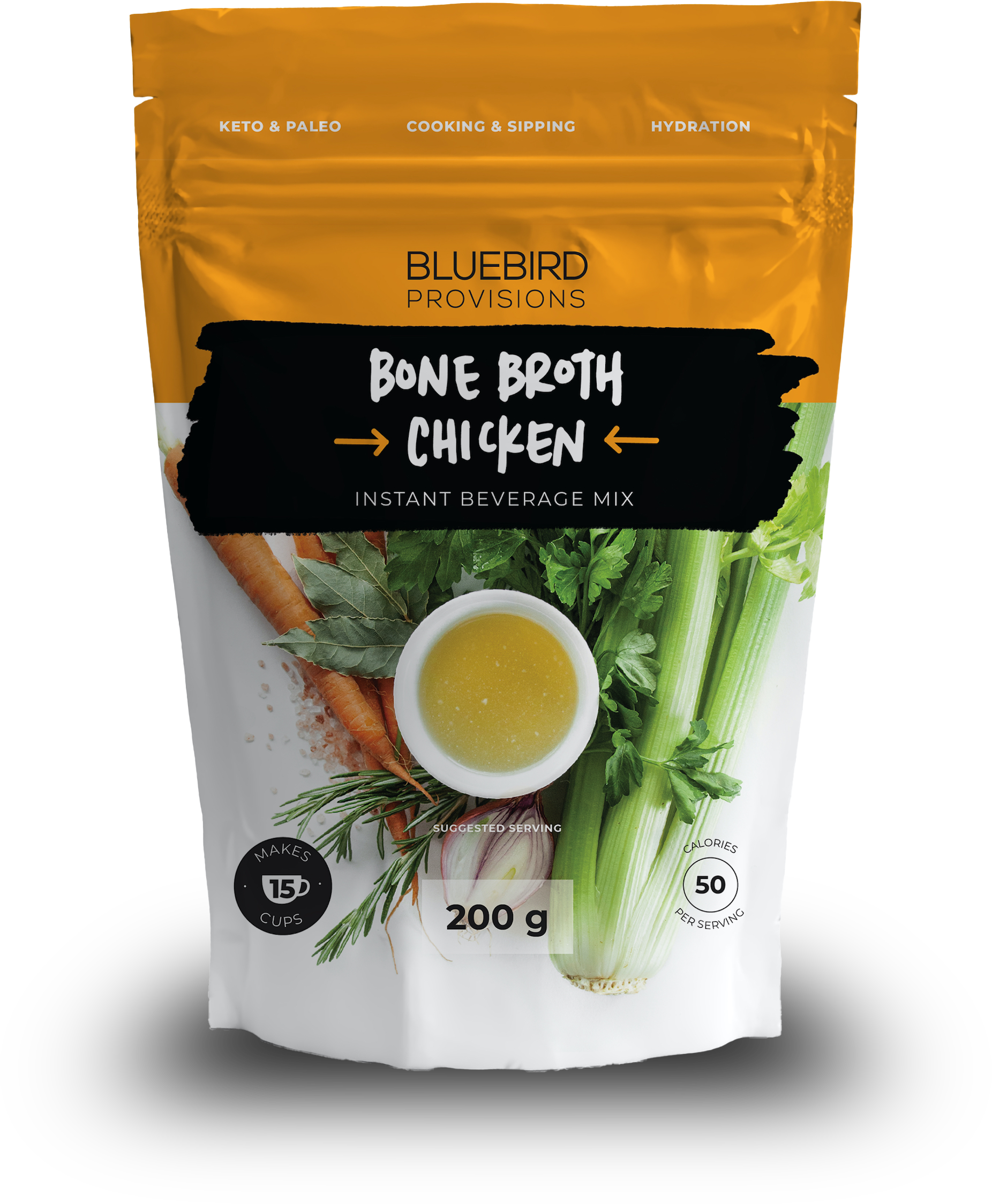
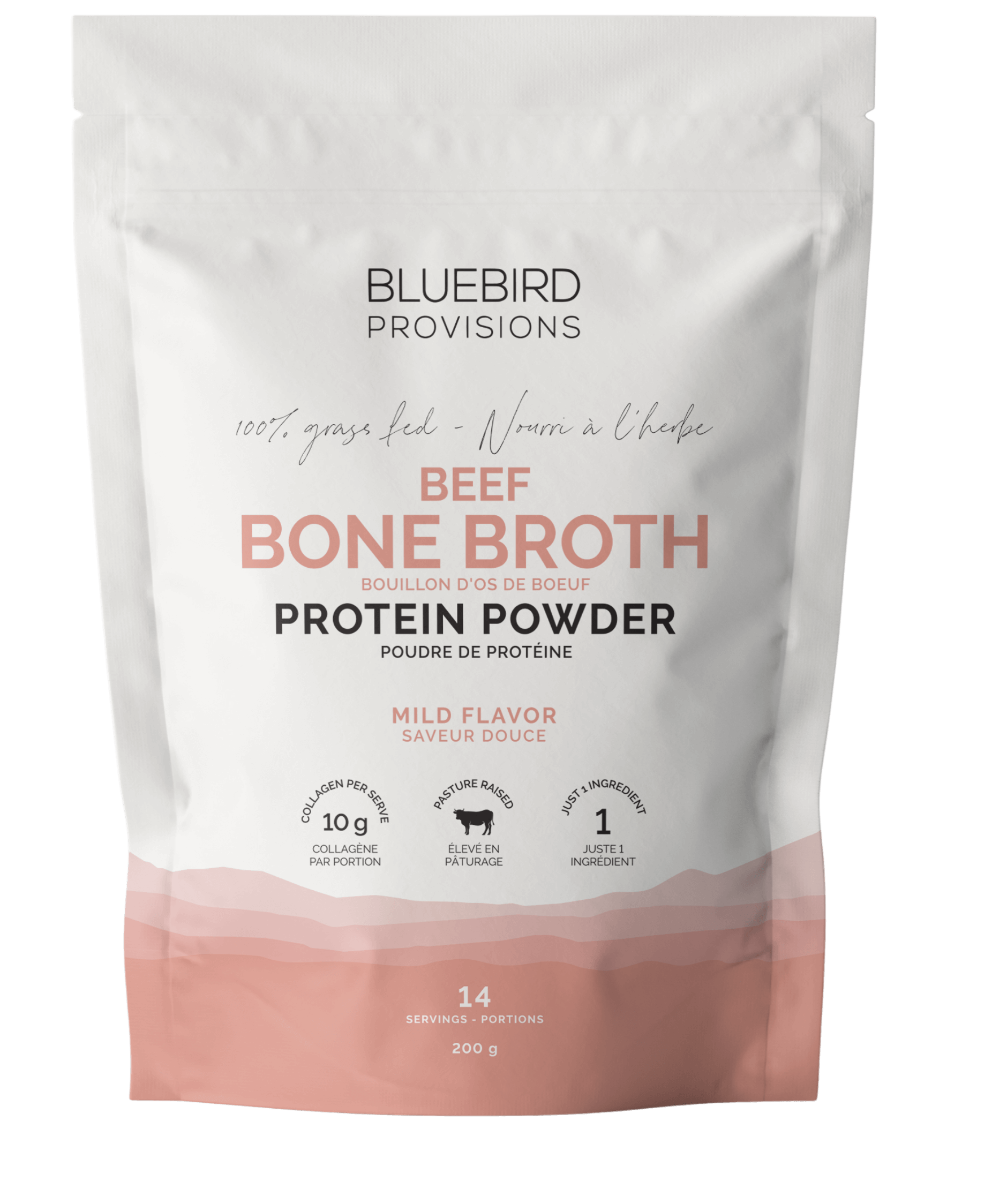
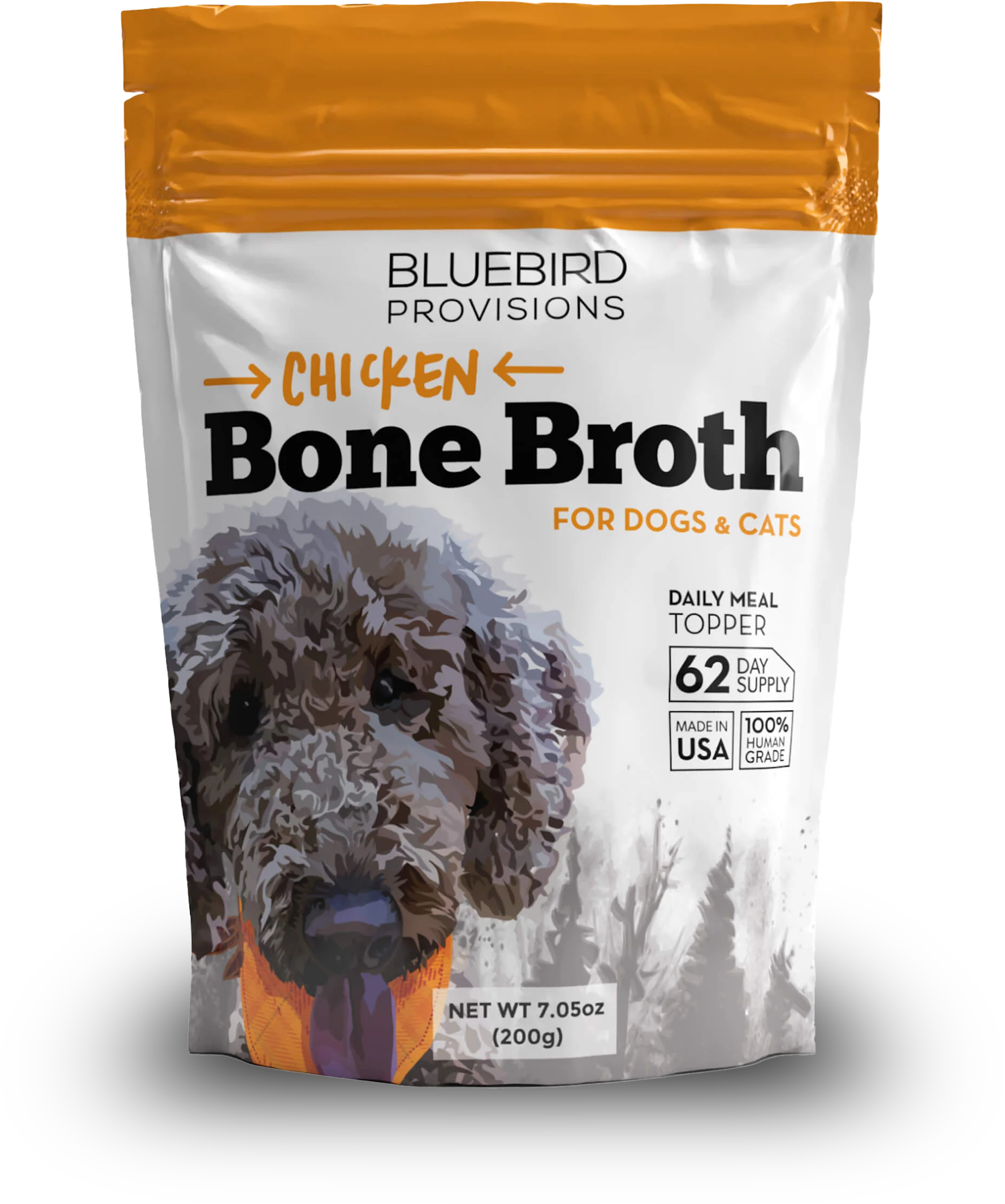
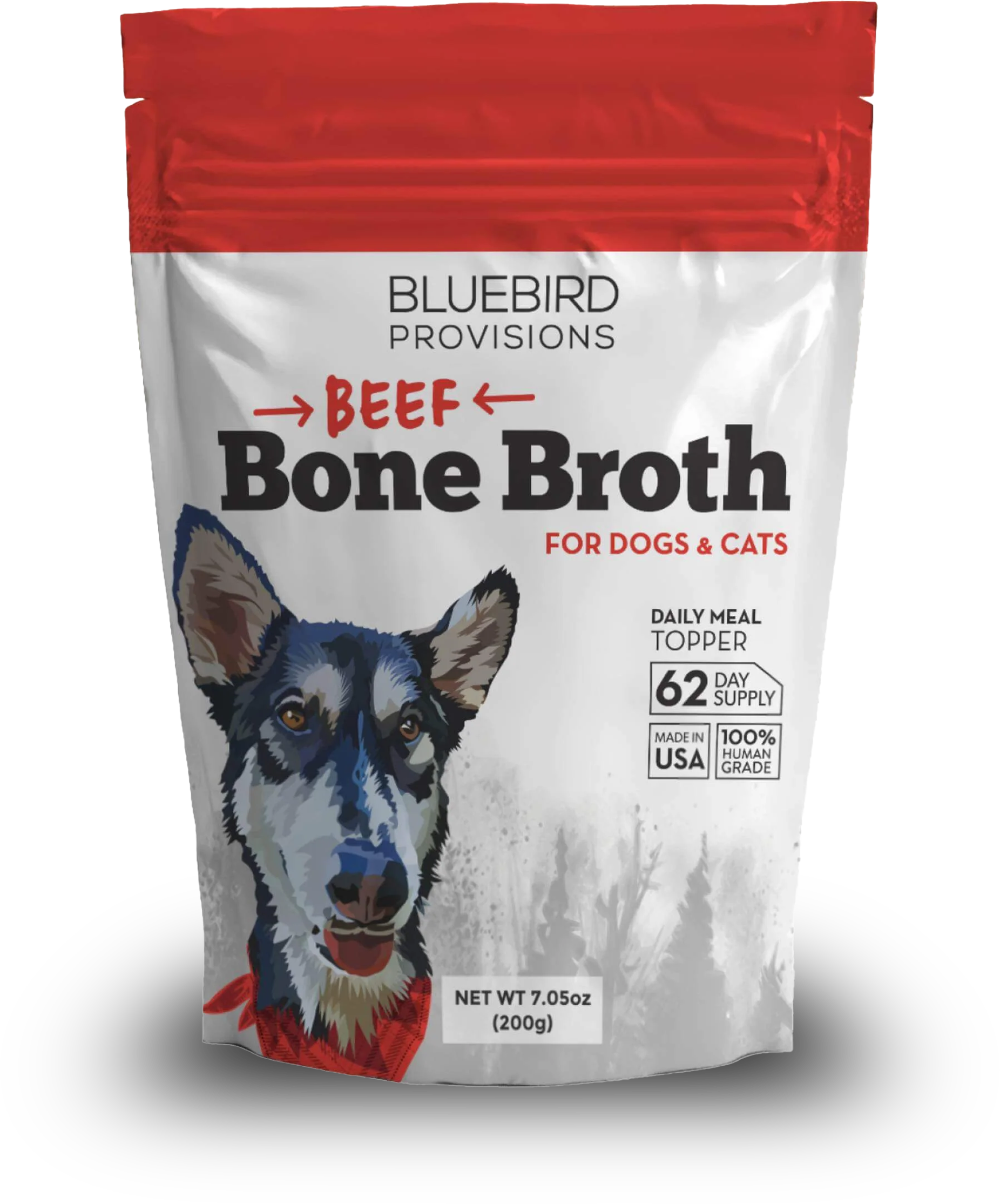
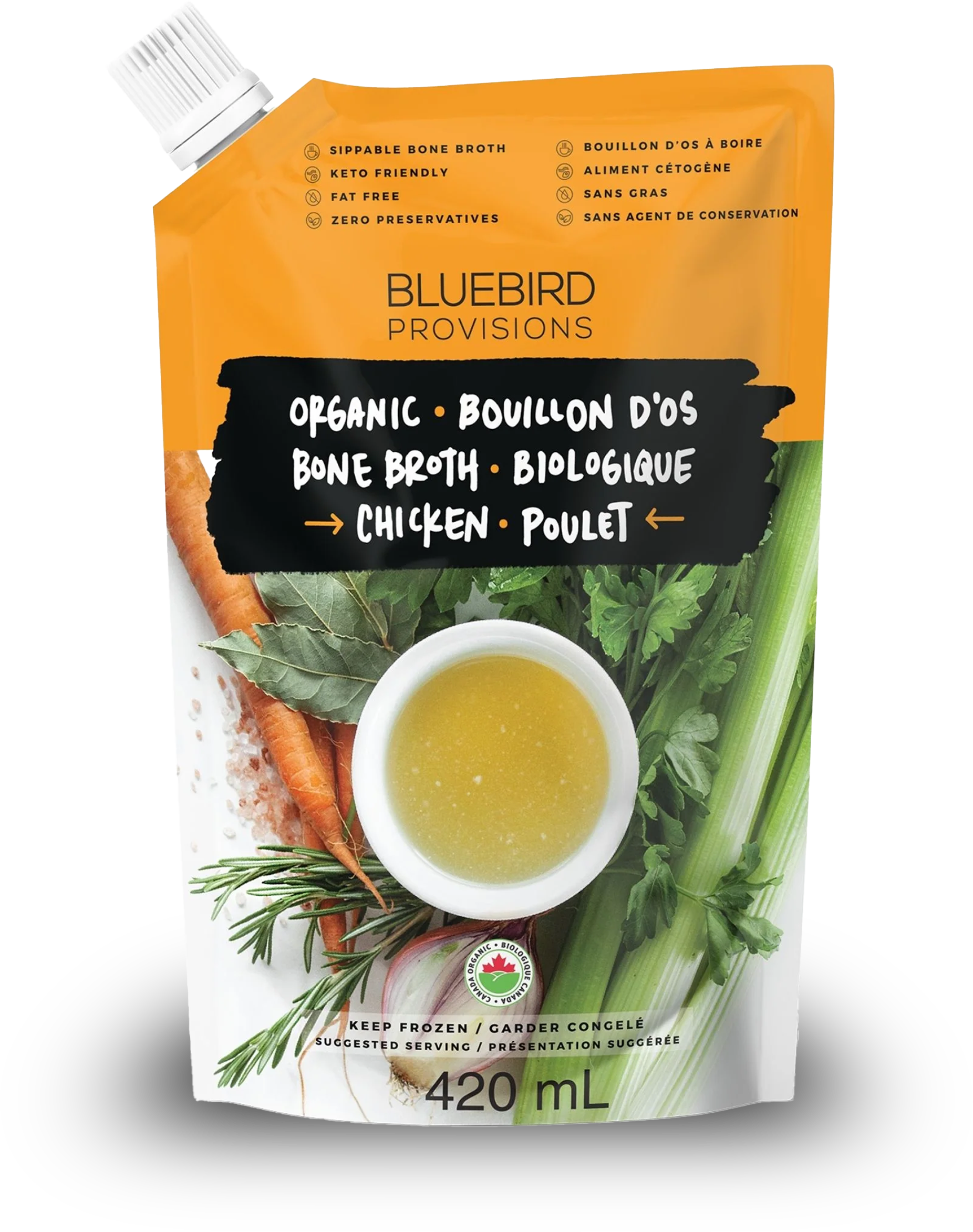
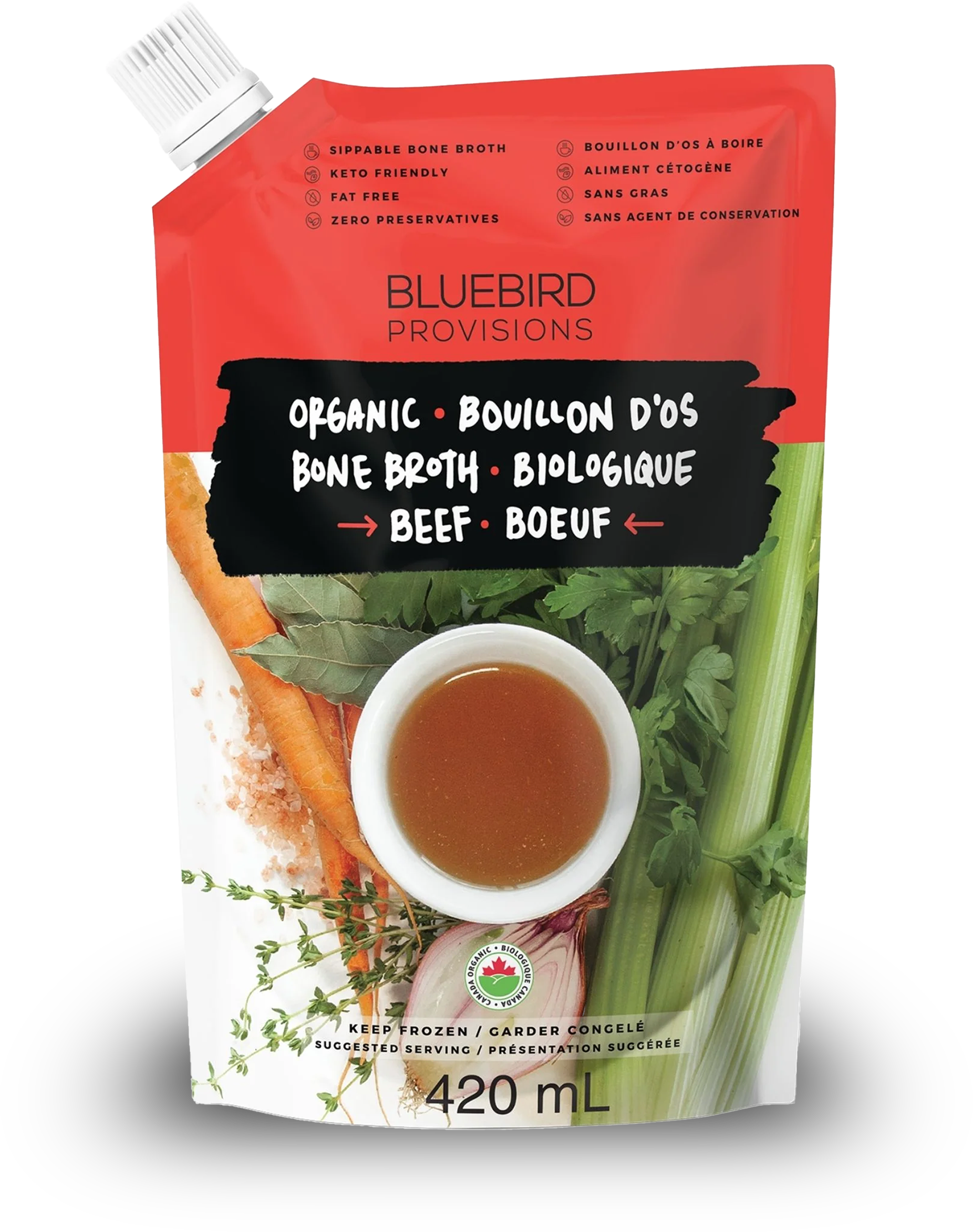


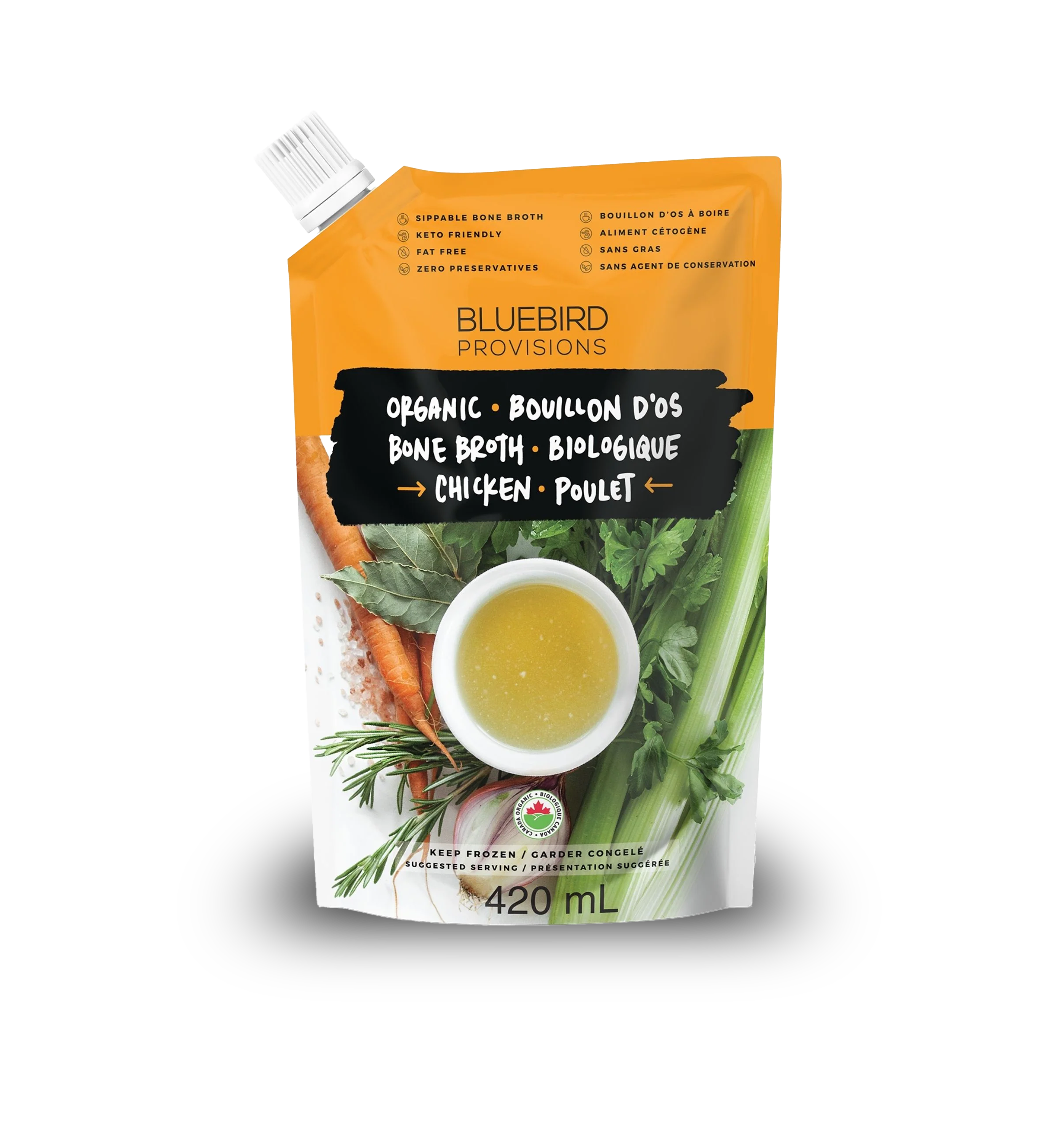
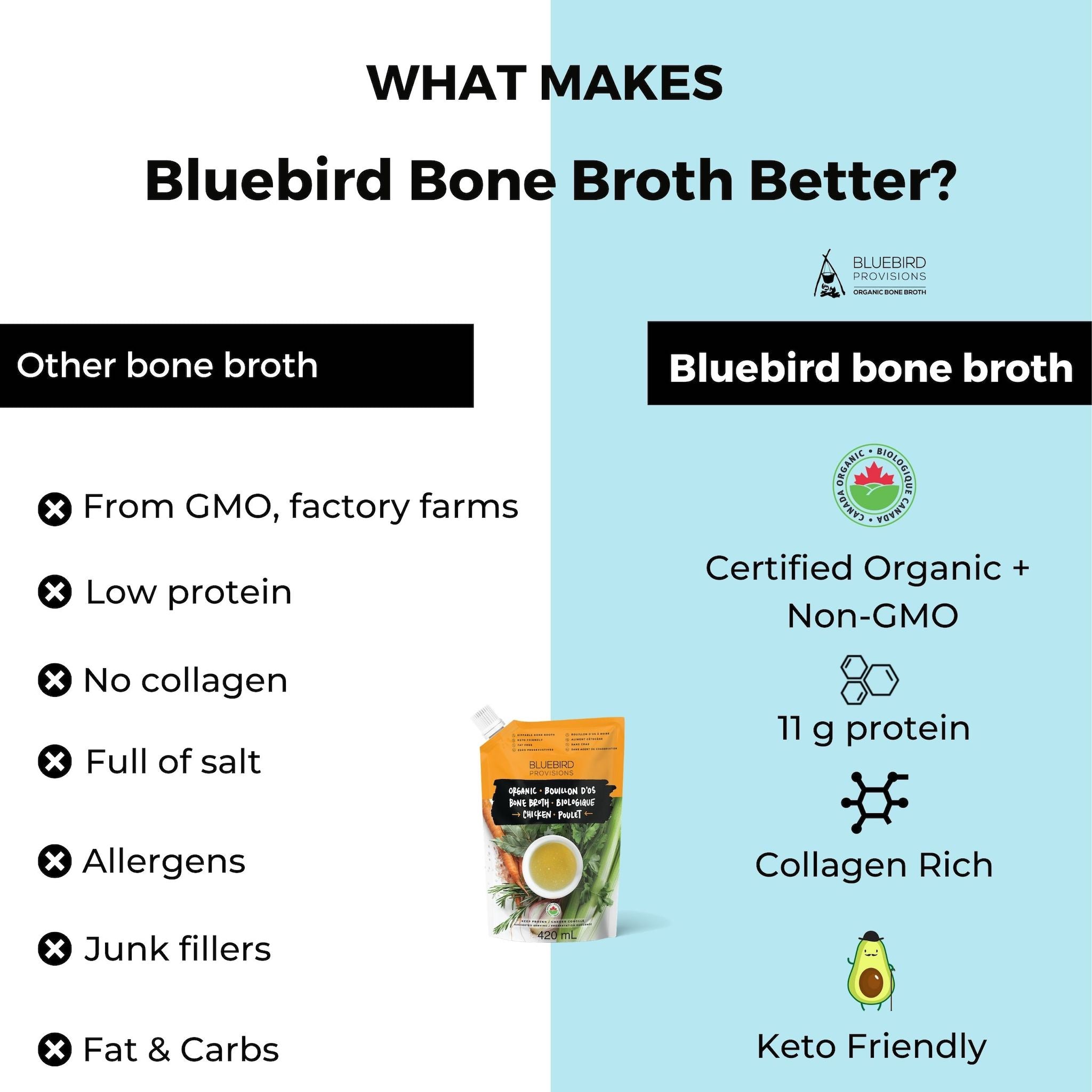
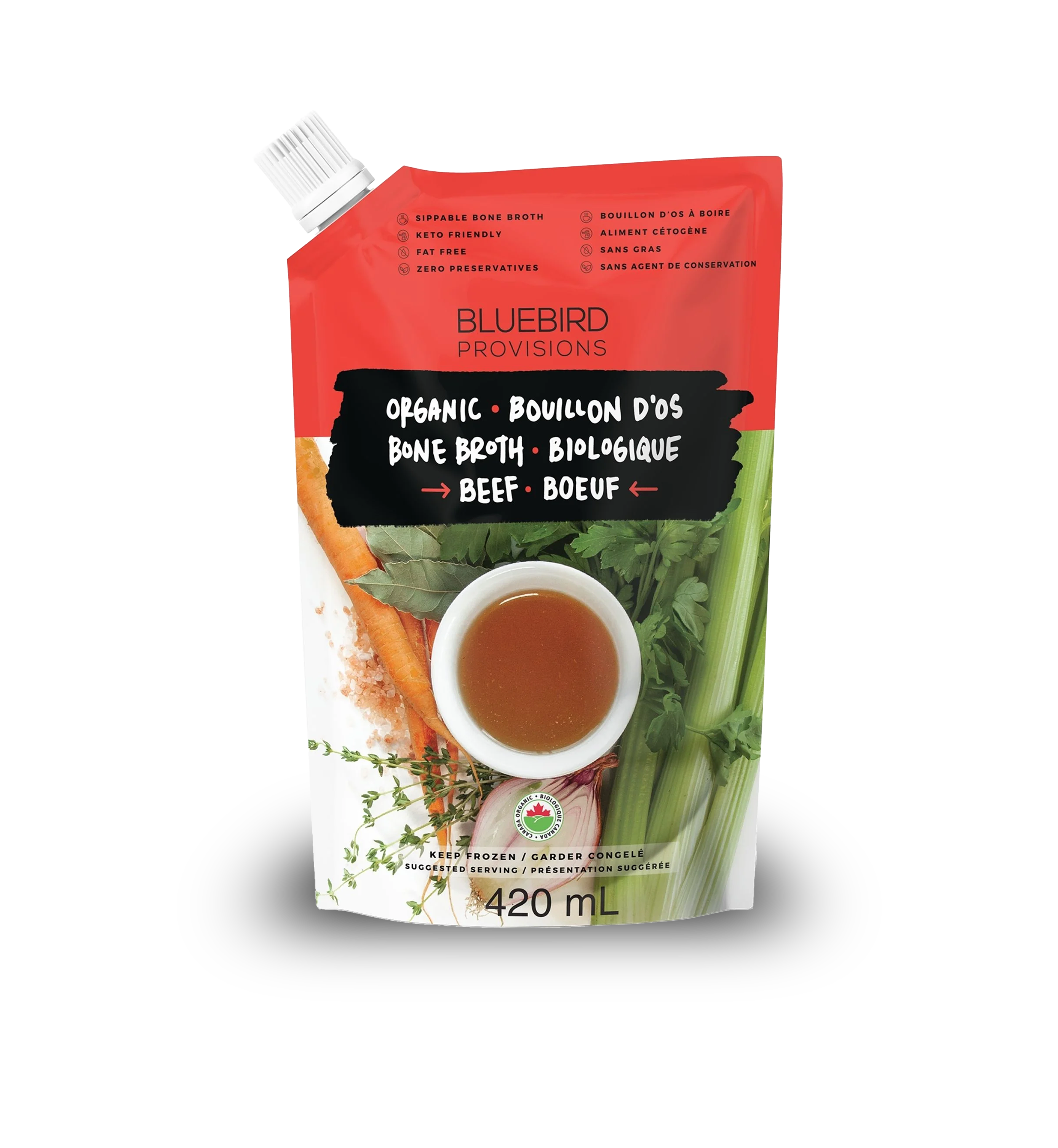
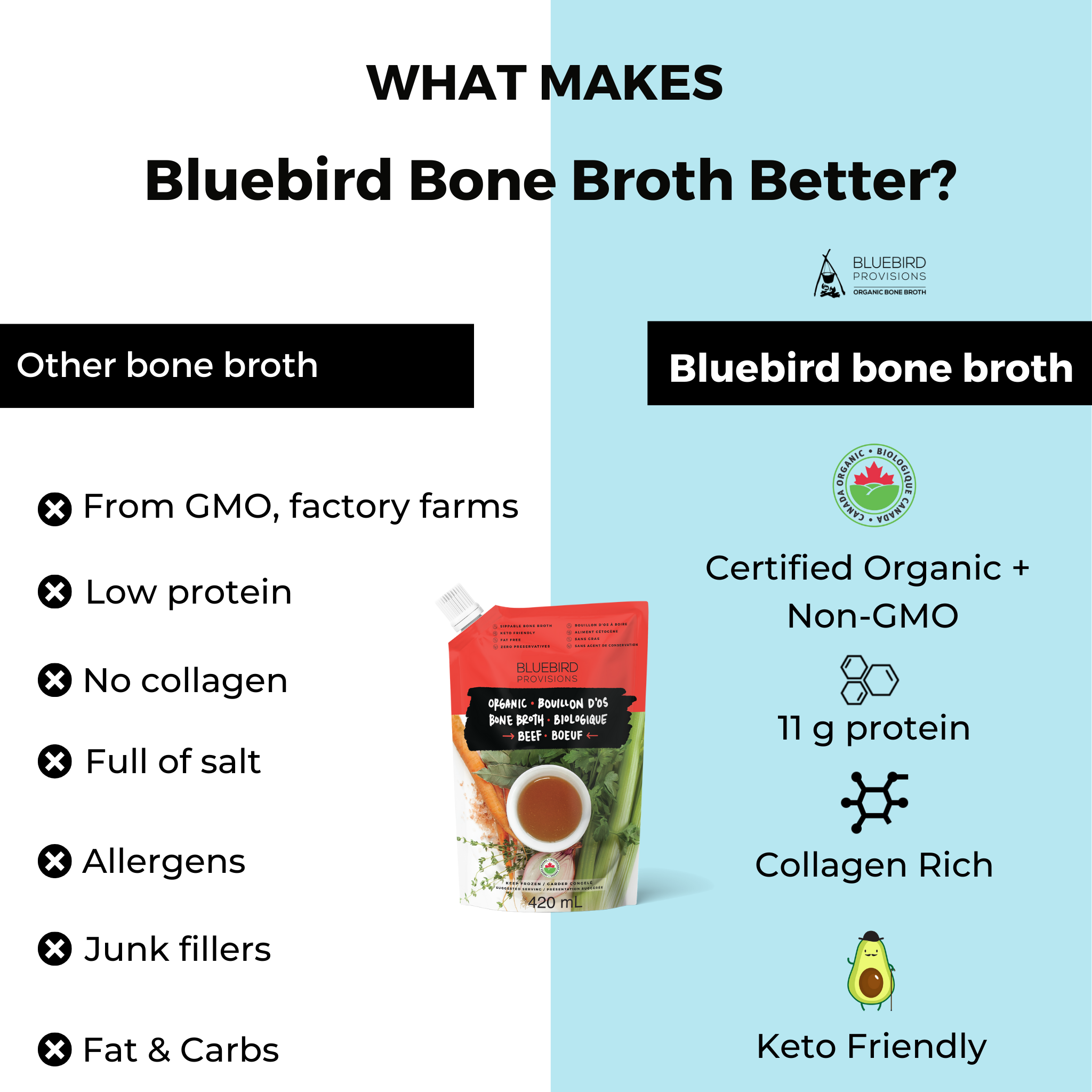
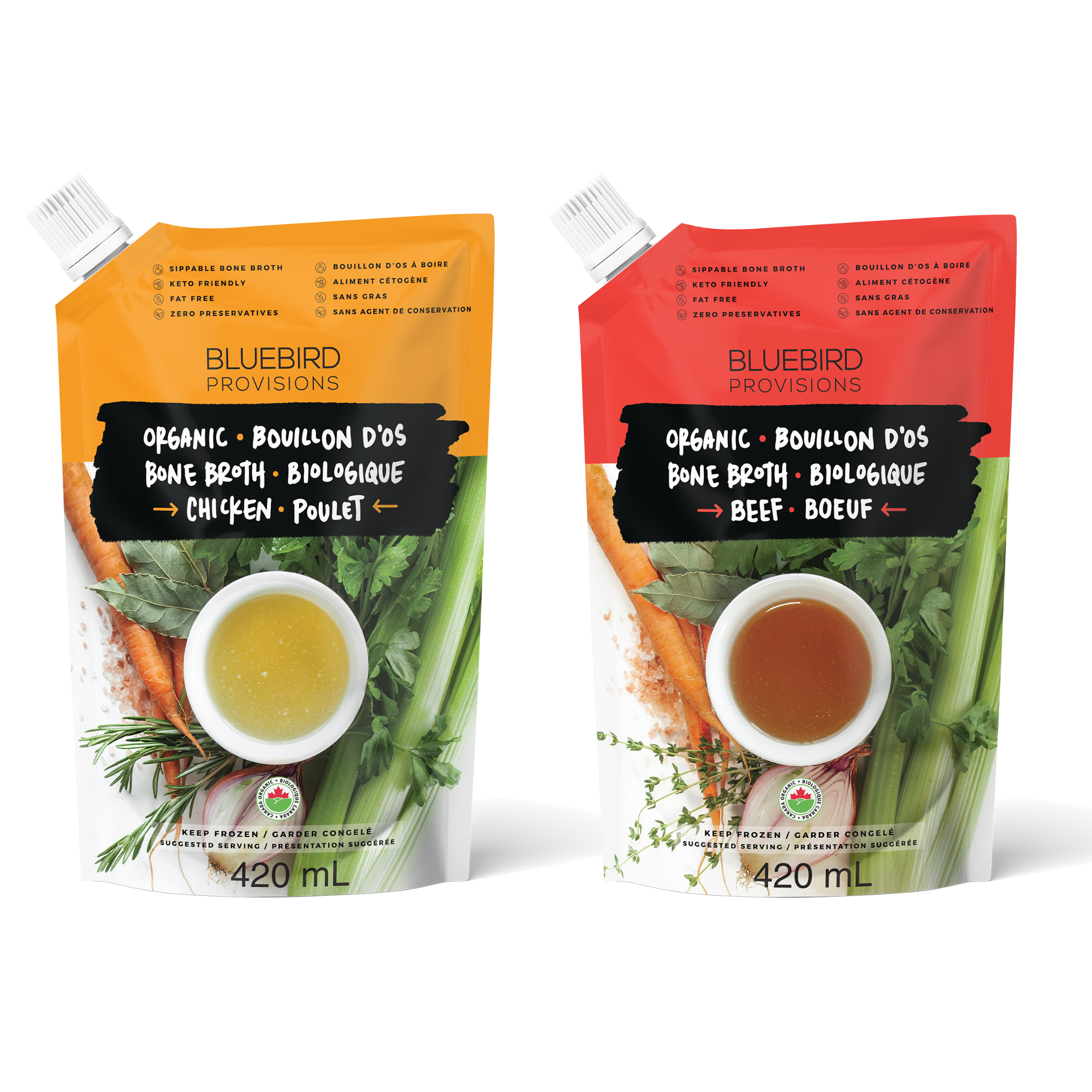

1 comment
I’ve been using collegen peptides for about a month now. I’ve already noticed better nails and skin. I don’t look so old as I did before. It’s definitely giving me results that I can see. I will keep taking it. Better results are down the road.
Rebecah L Pierce
Leave a comment
This site is protected by hCaptcha and the hCaptcha Privacy Policy and Terms of Service apply.